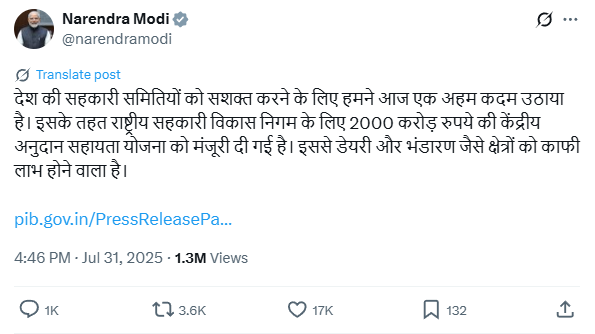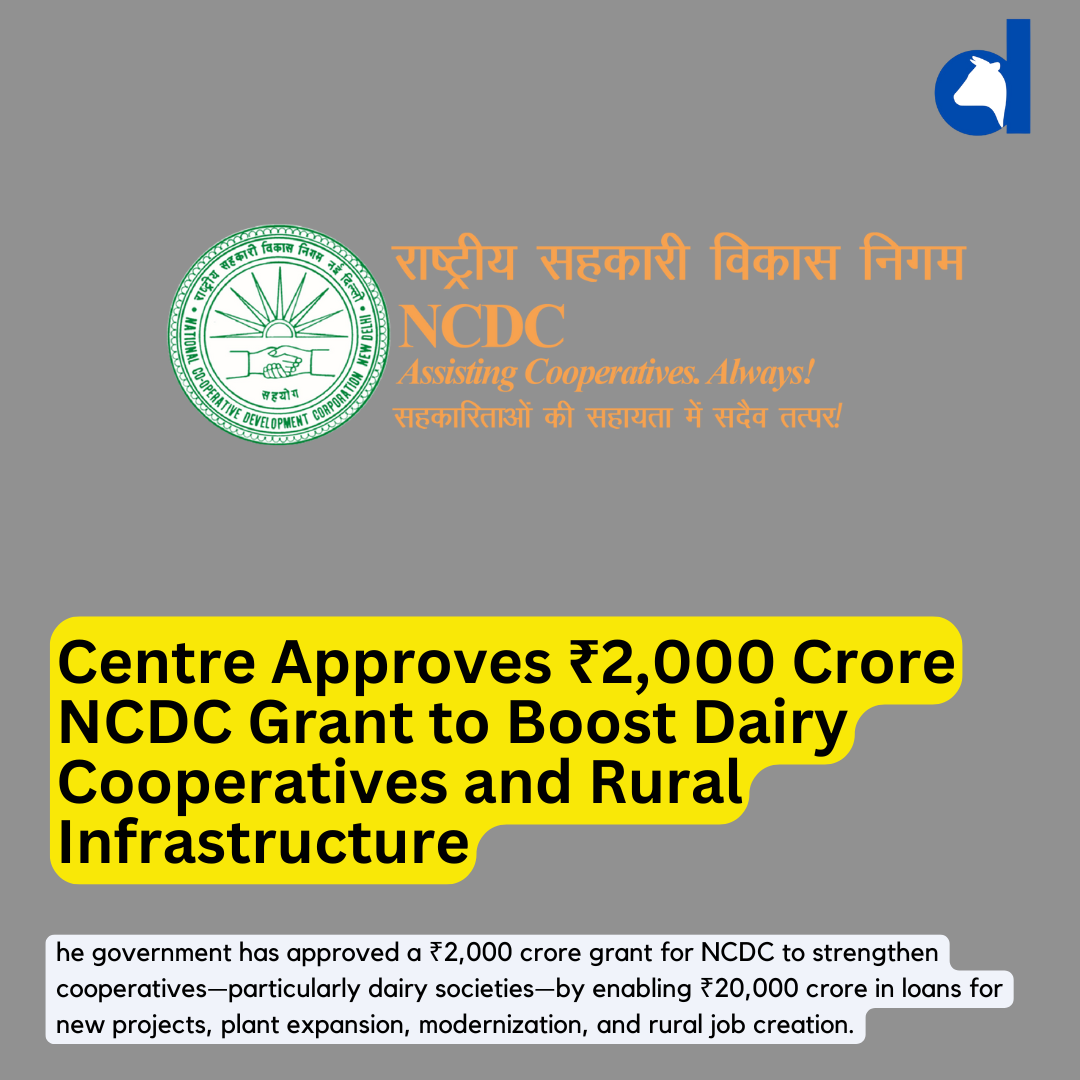
The Union Cabinet, chaired by Prime Minister Narendra Modi, has approved a landmark Central Sector Scheme titled “Grant-in-aid to National Cooperative Development Corporation (NCDC)” with a total financial outlay of ₹2,000 crore for 2025-26 to 2028-29. The scheme is set to transform India’s cooperative ecosystem—particularly the dairy sector—by unlocking access to affordable long-term credit and working capital.
â‚ą20,000 Crore in Market Leverage for Cooperatives
Under the scheme, the NCDC will receive â‚ą500 crore annually from the central government over four years. Leveraging this grant, the corporation will be able to raise â‚ą20,000 crore from the open market, which will be used to extend loans to cooperative societies across India.
The funds will help cooperatives:
- Set up new dairy and agro-processing projects
- Expand and modernize existing plants
- Upgrade infrastructure and technology
- Meet short-term working capital needs
This credit infusion is expected to benefit 13,288 cooperative societies, impacting 2.9 crore members across sectors such as dairy, livestock, fisheries, sugar, textiles, food processing, cold storage, and women- and labour-led cooperatives.
Focus on Dairy and Rural Livelihoods
The scheme is expected to provide a significant boost to the Indian dairy industry, which forms the backbone of rural livelihoods. Dairy cooperatives like Amul, Nandini, Mother Dairy, Verka, and other regional federations will be able to access funds for capacity expansion, modernization of chilling and processing units, and adoption of dairy technology innovations.
“Access to affordable long-term credit is crucial for strengthening rural cooperative infrastructure,” said Prashant Tripathi at Jordbrukare India “This move will not only increase milk processing capacity but also generate employment and improve income security for millions of small and marginal farmers.”
Empowering Rural India
By focusing on infrastructure creation and modernisation, the NCDC scheme will enable cooperatives to diversify their activities, enhance productivity, and build income-generating assets. This aligns with the government’s larger agenda to revitalise the cooperative sector as a pillar of rural economic growth.
NCDC will act as the executing agency for the scheme, overseeing disbursement, monitoring, and recovery of loans. Cooperatives will be funded either directly or through state governments as per NCDC guidelines.
Expected Outcomes
- Strengthened milk procurement and processing networks in rural India
- Enhanced productivity and profitability for dairy and agro cooperatives
- Employment generation through new and expanded projects
- Improved access to modern technology and cold storage infrastructure
The Cabinet’s decision is expected to catalyse sustainable growth in India’s dairy sector, which already contributes significantly to the country’s rural economy and food security.







